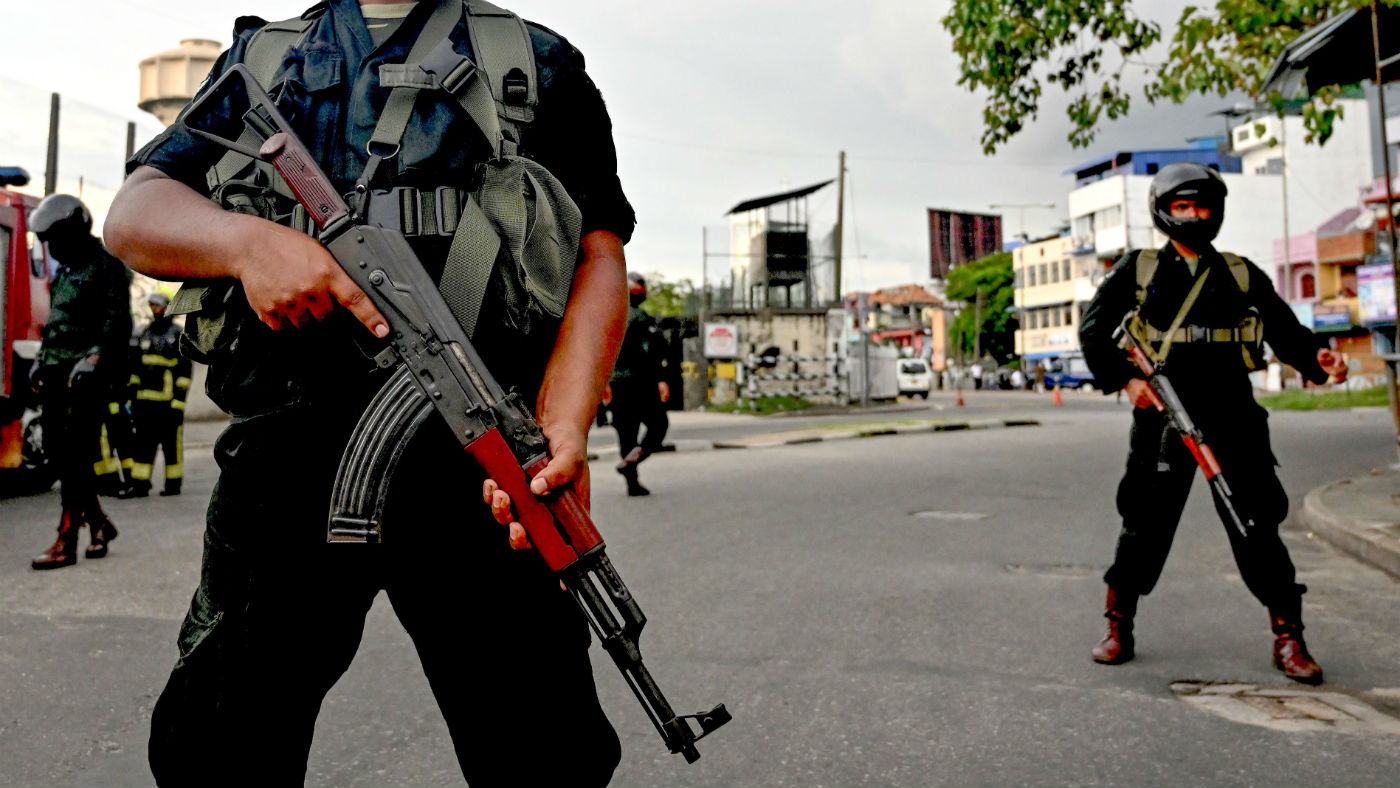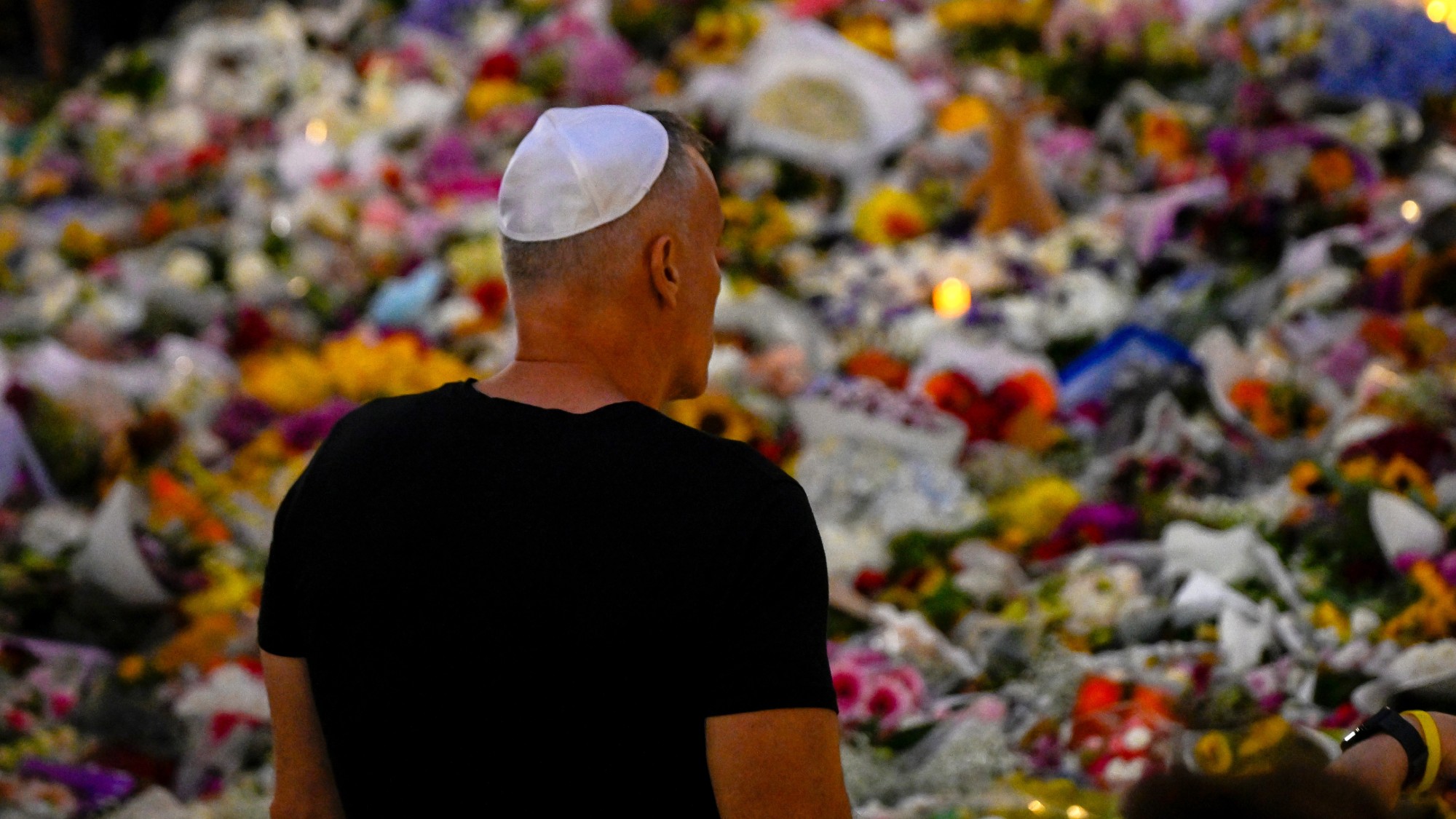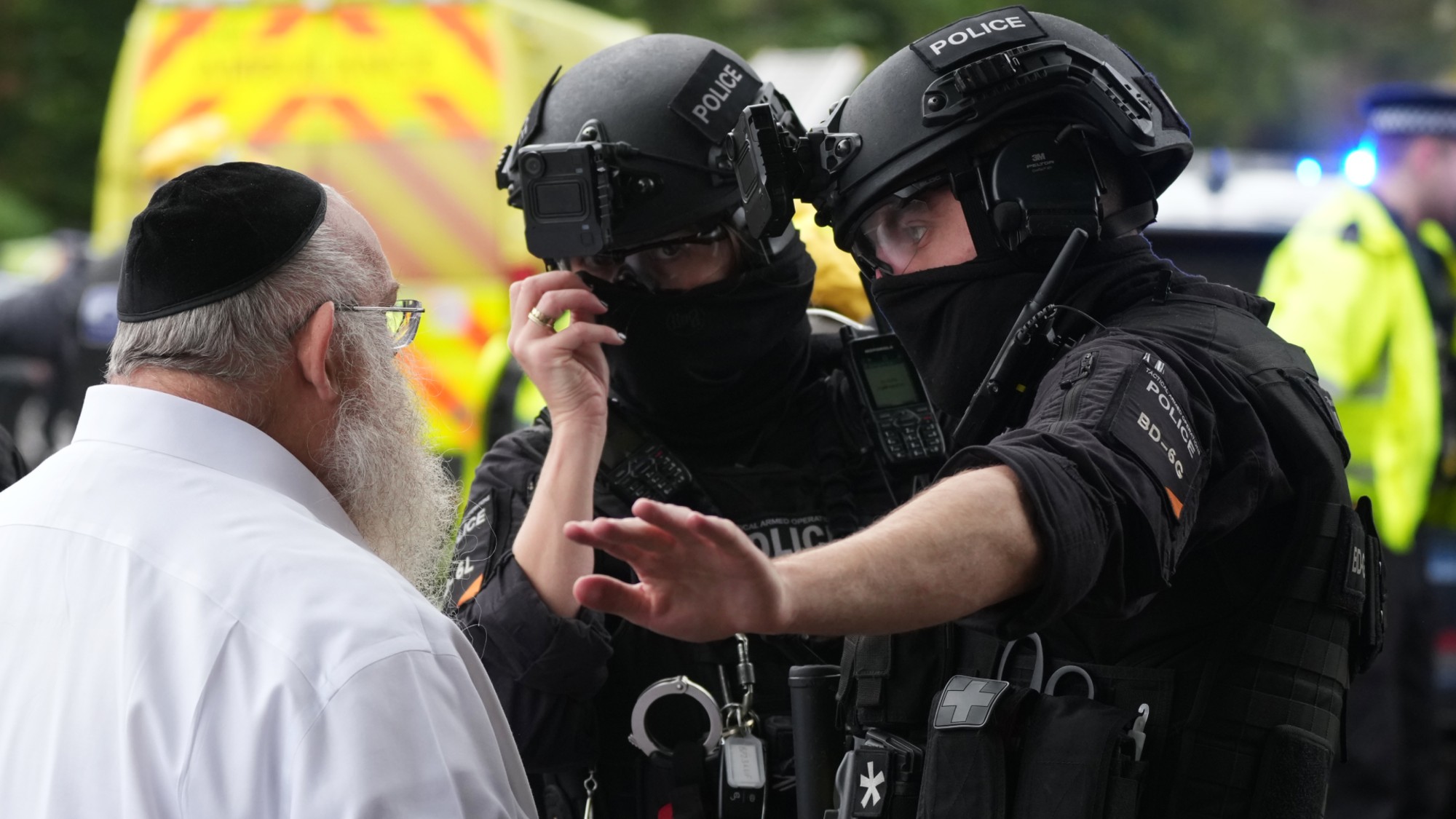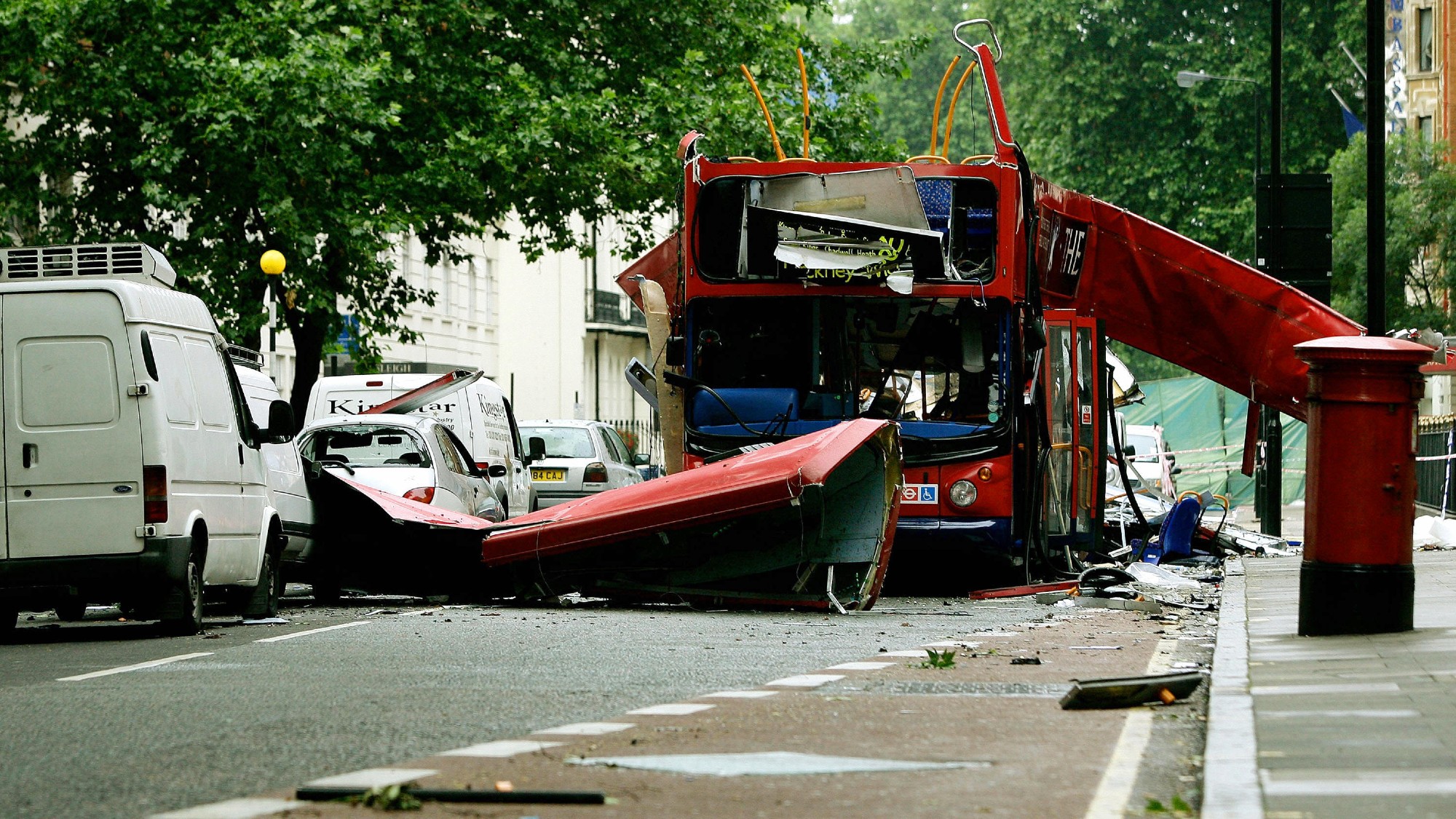Sri Lanka attacks ‘linked to international terror network’
Government blames local group, but experts point to ‘co-ordination, sophistication and timing’ as proof of foreign involvement

A free daily email with the biggest news stories of the day – and the best features from TheWeek.com
You are now subscribed
Your newsletter sign-up was successful
The wave of bombings that rocked Sri Lanka over Easter killing 310 people was most likely carried out with the support of an international network, experts claim.
As Sri Lanka prepares for a day of national mourning, no-one has yet claimed responsibility for the coordinated targeting of several churches and luxury hotels which left hundreds dead and over 500 injured.
The government has been quick to lay the blame at a little-known homegrown jihadist group, National Thowheed Jamath (NTJ).
The Week
Escape your echo chamber. Get the facts behind the news, plus analysis from multiple perspectives.

Sign up for The Week's Free Newsletters
From our morning news briefing to a weekly Good News Newsletter, get the best of The Week delivered directly to your inbox.
From our morning news briefing to a weekly Good News Newsletter, get the best of The Week delivered directly to your inbox.
Sri Lanka’s health minister, Rajitha Senaratne, announced that authorities had been warned of a possible attack by the group two weeks earlier and had the names of suspects.
Police have arrested 24 people in a series of raids, while a state of national emergency has been declared, giving the military extensive powers to detain and interrogate suspects without court orders.
But while the government has moved swiftly, many have suggested the attacks could not have been possible without some sort of foreign assistance.
“Very few here expected these massive attacks,” says the BBC’s Anbarasan Ethirajan, reporting from the capital Columbo. “The co-ordination, sophistication and timing may indicate international support, but it is not clear yet if National Thowheed Jamath, if it is indeed responsible, has links with global jihadist groups”.
A free daily email with the biggest news stories of the day – and the best features from TheWeek.com
According to local social media, one of the suicide bombers was an NTJ preacher who made tub-thumping speeches on YouTube backing radical Islamist movements across the region.
The Guardian’s Jason Burke reports that Islamist militant attacks “have largely been the work of local groups rather than major international organisations such as Islamic State and al-Qaida, despite the continuing efforts of both to expand in the arc between Afghanistan and Bangladesh”.
He writes that each group has built links with local factions and individuals, working through what are effectively “subcontractors”.
However, “the magnitude of the attack and the targets, Christians and tourists, points in the direction of an international network of terrorists” says Andreas Johansson in The Independent.
“For a small group to make a jump from vandalism and rhetoric to a major, highly co-ordinated attack of this scale without outside assistance would be unprecedented” says The Times’ Richard Spencer.
The Times says there have also been fears that Islamic State militants returning from the Middle East could pose a threat in Sri Lanka, while Burke claims “at its peak, Islamic State successfully attracted a very significant number of recruits from the Maldives, the islands close to Sri Lanka, with which there are strong transport and commercial links”.
At least 32 members of Sri Lanka’s minority Muslim population are known to have travelled to Iraq and Syria to fight alongside Islamic State and “some may have returned and brought their expertise with them” says Spencer.
Whoever is ultimately proven to be behind the attacks, Johnasson says they represent a “new form of terrorism” in a country already polarised by so many different conflicts as to make it “ripe for exploitation by those with a twisted agenda.”
-
 Crisis in Cuba: a ‘golden opportunity’ for Washington?
Crisis in Cuba: a ‘golden opportunity’ for Washington?Talking Point The Trump administration is applying the pressure, and with Latin America swinging to the right, Havana is becoming more ‘politically isolated’
-
 5 thoroughly redacted cartoons about Pam Bondi protecting predators
5 thoroughly redacted cartoons about Pam Bondi protecting predatorsCartoons Artists take on the real victim, types of protection, and more
-
 Palestine Action and the trouble with defining terrorism
Palestine Action and the trouble with defining terrorismIn the Spotlight The issues with proscribing the group ‘became apparent as soon as the police began putting it into practice’
-
 How the ‘British FBI’ will work
How the ‘British FBI’ will workThe Explainer New National Police Service to focus on fighting terrorism, fraud and organised crime, freeing up local forces to tackle everyday offences
-
 How the Bondi massacre unfolded
How the Bondi massacre unfoldedIn Depth Deadly terrorist attack during Hanukkah celebration in Sydney prompts review of Australia’s gun control laws and reckoning over global rise in antisemitism
-
 Who is fuelling the flames of antisemitism in Australia?
Who is fuelling the flames of antisemitism in Australia?Today’s Big Question Deadly Bondi Beach attack the result of ‘permissive environment’ where warning signs were ‘too often left unchecked’
-
 Ten years after Bataclan: how has France changed?
Ten years after Bataclan: how has France changed?Today's Big Question ‘Act of war’ by Islamist terrorists was a ‘shockingly direct challenge’ to Western morality
-
 Arsonist who attacked Shapiro gets 25-50 years
Arsonist who attacked Shapiro gets 25-50 yearsSpeed Read Cody Balmer broke into the Pennsylvania governor’s mansion and tried to burn it down
-
 Manchester synagogue attack: what do we know?
Manchester synagogue attack: what do we know?Today’s Big Question Two dead after car and stabbing attack on holiest day in Jewish year
-
 The Miami Showband massacre, 50 years on
The Miami Showband massacre, 50 years onThe Explainer Unanswered questions remain over Troubles terror attack that killed three members of one of Ireland's most popular music acts
-
 The failed bombings of 21/7
The failed bombings of 21/7The Explainer The unsuccessful attacks 'unnerved' London and led to a tragic mistake